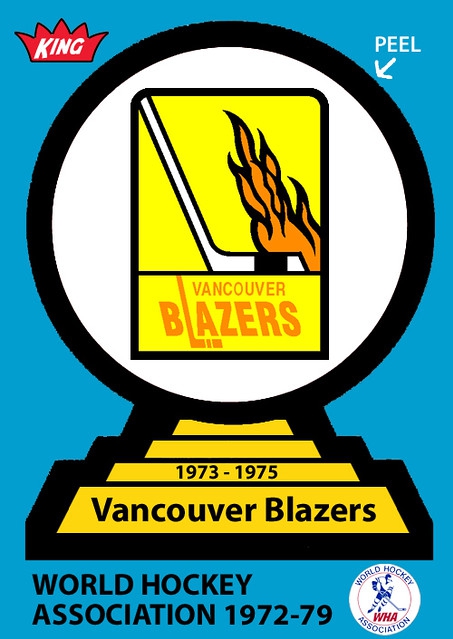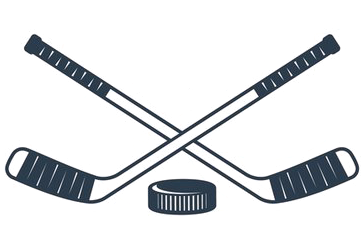
First, they were the Miami Screaming Eagles. Then they moved North and became the Philadelphia Blazers. The franchise underwent another significant evolution under the guidance of Jim Pattison, a renowned industrialist, who acquired the team and moved it to Canada.
The Vancouver Blazers emerged as Pattison's own World Hockey Association (WHA) franchise, marking a new era for hockey in the city.
Pattison secured the Blazers a team that had clinched third place in the WHA's Eastern Division the previous season, for $1.9 million. Expressing his dedication to Vancouver fans, he promised to deliver a playoff-caliber team, a rarity in a city that had only experienced this once during his observation of professional sports.
During a press conference at the Bayshore, Pattison wasted no time in issuing a challenge to the established National Hockey League's Vancouver Canucks for a best-of-three series, with proceeds aimed to benefit minor hockey programs. Simultaneously, he opened applications for season tickets at a temporary office located at Burrard and Robson.
The atmosphere within the Pattison-led group was marked by high expectations and a sense of lightheartedness. The team's new faces, including general manager Phil Watson and playing coach Johnny “Pie” McKenzie, exuded optimism.
McKenzie, former Stanley Cup Champion with the NHL's Boston Bruins, took the spotlight alongside the new ownership and asserted his belief in Vancouver as a superior hockey town compared to Philadelphia. He suggested a departure from the challenges faced there, anticipating a revitalized environment for the team.
“I think Vancouver is a better hockey town than Philadelphia . . . I don't think we'll have the same problem here like we did with the Flyers.”
Despite acknowledging the need to address certain gaps in the team, McKenzie highlighted the strength of the players' speed and toughness, emphasizing their determination to win.
“We have a speedy, tough group of hockey players, guys who want to win. There is no doubt we have some holes we have to fill.”
He also referenced the concept of parity within the league, noting the competitive balance that allowed most teams to stay in playoff contention until the final regular-season game.
“I think we'll provide entertainment . . . there was only one team eliminated from the playoffs until the final regular-season game. That speaks well for parity.”
Regarding the challenge to the Canucks, McKenzie expressed doubts about their acceptance.
“I don't think they will accept. They've got something to lose, we haven't.”
In response, the Canucks' spokesperson Coley Hall, proposed exhibition games with their farm club in Seattle, cautioning the public against purchasing season tickets without assessing the product's quality.
“We would be glad to play them two exhibition games with our No. 1 farm club in Seattle. One game would be played in Seattle and one in the Coliseum with proceeds going to minor hockey. I'd like to warn the hockey public not to buy season tickets until they've seen the product. They'll be buying an unknown quantity.”

“We have the league scoring champion, Andre Lacroix (50 goals, 74 assists) and Danny Lawson (61 goals). And I hope we'll have Bernie Parent in goal. We have signed one and are close on another American Hockey League defenceman and we've got an American League left winger signed.” McKenzie said:
The team's management, particularly Watson, assured the acquisition of key players and their intention to aim for a high standing within the league. They outlined their strategy to scout and sign talented players, expressing confidence in securing the necessary personnel to compete effectively.
“I'll tell you right now we'll have Bernie Parent in goal or someone just as good. And we'll finish in second place, at least. We had problems in Philadelphia because we got off on the wrong foot. The Civic Centre wasn't a good place to play and the ice cracked when we had 7,800 fans for our first game. Johnny (McKenzie) broke his arm and (Derek) Sanderson was overweight, then got hurt, and Bernie (Parent) broke his foot. It was a bad scene,” said Watson. “We've had to alter our thinking. We're going to try and pick westerners instead of Eastern juniors now. We've got the fifth, 17th and 29th picks and I think I should be able to sign two good Western Canadian juniors,” he said.
Additionally, they unveiled the pricing structure for tickets, offering a reduction compared to the Canucks' prices and enticing potential fans with further discounts for early season ticket applications.
The anticipation surrounding the team's development was evident as key figures like McKenzie and Watson prepared for crucial league meetings, indicating a proactive approach to building a competitive roster.
McKenzie, reflecting on the team's previous challenges in Philadelphia, admitted the difficulties faced and planned to resume coaching duties, drawing from the experience and learning from mistakes alongside Phil, an influential figure in his hockey career.
Ticket prices were positioned lower than those of the Canucks, with additional discounts for early-season ticket applicants, aiming to attract a strong fan base.
In the pursuit of strengthening the team, the Blazers were rumored to seek certain NHL players and had allegedly signed a defenseman from the AHL's Cincinnati Swords.

McKenzie admitted it was “terrible, just terrible in Philadelphia. We had more people watching our practices in Boston than at most games in Philadelphia.”
“I think I learned a lot from my mistakes and from Phil, who's the most knowledgable hockey man I've met in 14 years of professional hockey.” McKenzie, who still had two years left on his contract, signed for an additional year with Vancouver.
Ticket prices were 50c less than the Canucks for every seat- $5.50 for reds, $5.00 for blues and $3.50 for greens. People who applied for season tickets by June 30 got a further 15 percent reduction. The season ticket structure was based on 39 home games.
It was rumored that the NHL player the Blazers were really after was Montreal Canadiens defenseman Bob Murdock.

The roster inherited by Vancouver from the Philadelphia Blazers upon their playoff elimination showcased a mix of talented players, including standout names in goalkeeping, defense, and forward positions, providing a foundation for the new franchise's ambitions.
BLAZERS' ROSTER
The roster Vancouver inherited from Philadelphia Blazers was as follows:
Goalies — Bernie Parent, Yves Archambault, Marcel Paille.
Defence — Rychard Campeau, Jim Cardiff, Ron Plumb, Irv Spencer, Dave Hutchison, John Migneault.
Forwards — Andre Lacroix, Danny Lawson, Don O'Donoghue, Don Harriman, John McKenzie, Don Burgess, Bryan Campbell, Camille Lapierre, Sam Gellard, Murray Myers.
